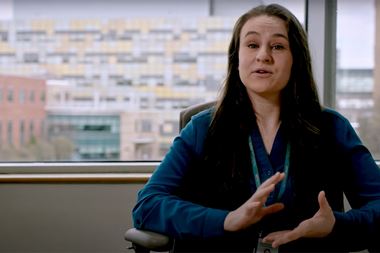
Popular Locations
- Yale New Haven Children's Hospital
- Yale New Haven Hospital - York Street Campus
- Yale New Haven Hospital - Saint Raphael Campus

Patients are required to consult with a dietitian before surgery. Your insurance and medical team may determine the number of visits required to prepare you for surgery. Counseling after surgery is available on an individual basis as needed or recommended by your surgical team.
You will be provided with materials that clearly outline expectations regarding your diet and compliance to guidelines for the best outcome. After surgery, health and weight loss are highly dependent on patient compliance with these guidelines. You must do your part by restricting high-calorie foods, by avoiding excess starches, sugars, fats and empty calories.
You will be encouraged to eat three high-protein meals and two healthy snacks per day. Your diet will also be comprised of colorful fruits, vegetables, beans and low-fat dairy products.
Nibbling or "grazing" on foods adds hundreds of calories a day to your intake and can slow down your weight loss or lead to regain of weight.
Eggs, skinless chicken, turkey, tofu, seafood and low-fat dairy products are some of the best choices of protein. Sixty to 80 grams a day are generally a sufficient amount of protein to help you maintain lean body mass (muscle) and aid healthy weight loss.
When you are losing weight, there are many waste products to eliminate, mostly in the urine. Some of these substances tend to form crystals, which can cause kidney stones. A high water intake protects you and helps your body rid itself of waste products efficiently, promoting better weight loss. Water also fills your stomach and helps to prolong and intensify your sense of satisfaction with food. Being adequately hydrated also promotes a healthy metabolism.
Although every person’s experience is different, common foods that are not well tolerated include:
No matter which bariatric surgery you have, you will find that even small amounts of alcohol will affect you quickly. A caution for gastric bypass and sleeve gastrectomy patients: You will process alcohol into your system much more rapidly than before surgery and can have higher blood alcohol levels with less intake. Studies have shown that the risk of developing alcohol dependency increases after surgery, therefore, routine use of alcohol should be avoided.


Join us for a free, live webinar to learn how to improve your health with bariatric weight-loss surgery.